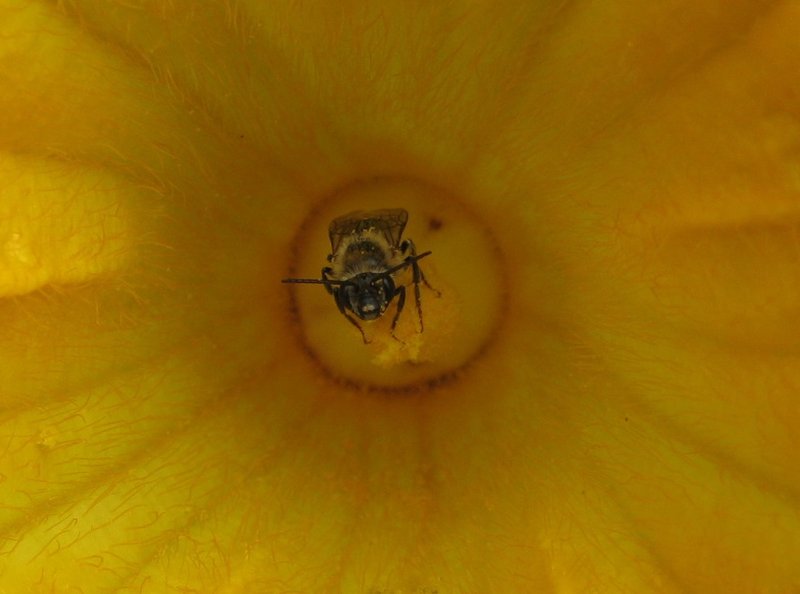Are Gardeners Accidentally Killing Bees?

Well, I recently found out that I might be accidentally killing bees and I’m not happy about it. I’ll explain by telling you about my recent trip.
This spring I visited my friend in Vancouver. The spring flowers were thriving and my friend, a keen gardener, showed me her garden with pride. The crocus, snowdrops and daffodils were all in bloom and the tulips were in bud.
She also pointed out the cheerful yellow pansies she had just bought on sale from her local garden centre. “Did you ask them if they grow their own plants?" I asked. I had been doing some research over the winter after a another friend found dead and dying bees in her garden last summer, and shared my findings.
A lot of garden centres don’t grow their own plants, but ship them in from large commercial growers. Most of these commercial growers use neonicotinoid insecticides (neonics) to make sure they are not shipping unwanted insects along with the plants.
Normally, with most insecticides, this would not be a problem, but neonics are designed to be taken up by the plant, so that all parts of that plant become poisonous. Plants sold at garden centres are usually in full flower, which means their nectar and pollen is toxic to bees, butterflies and other beneficial insects.
My friend was horrified. She had no idea that she might be accidentally poisoning the very insects she was trying to attract. So we decided to go back to the garden centre to get more information. The sales staff couldn’t help, but called the manager over.
Yes, the pansies had been grown elsewhere, he said, and he was sorry but he didn’t know if they had been treated with neonics. He explained that commercial growers have a long list of pesticides that Health Canada permits them to use. There was no law saying that they had to identify which products they used, so they were under no obligation to tell him anything. And yes, he did have some organic plants, but they were mostly vegetables.
We sadly went back home and my friend dug up her prize pansies and put them in the garbage. She didn’t want to take a chance with them. She also realized it was no use composting them because neonics take over a year to break down.
Now that the snow has melted, I’m doing the same in my garden. I have dug up the plants that I bought on sale last fall, but where do I go from here?
I get most of my plants from perennial exchanges, farmer’s markets and friends and neighbours, and I grow some from seed, but there is always the lure of the garden centre. It’s like a candy store to me.
Last year Home Depot promised to phase out the use of neonics on their plants and to label any that were treated with neonics. More recently, Lowes and Rona made similar announcements. If these companies mean what they say, then they will be my garden centres this year.
I will also be looking for sources that sell organic plants. And if I end up in a garden centre, I will make sure to ask them if they grow their plants from seed, and if they are neonic-free. I invite you to do the same. Things won’t change until garden centres and commercial growers hear from their customers that neonics are not acceptable.
--
Not yet a member?
An annual membership to Seeds of Diversity gives you access to our seed exchange, seed grow-out programs, and our online news.

We depend on donations to do our work.

Thank you for your support!
